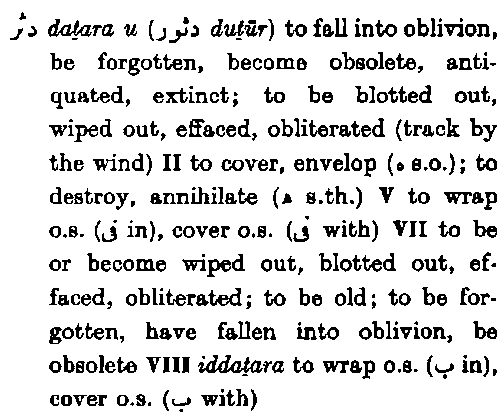The context
Source
The Arab nation consisted of various tribes, sundered by
conflicts and enslaved by passions. Each tribe gloried in wars
with its neighbour, capturing the women folk, killing the chieftains and pillaging the land. Greed inspired these perpetual battles. With the decay of belief went every sort of evil. So low did the Arabs' intelligence sink that they even made sugar idols and worshipped them, and ate them when they were hungry. In their helpless degradation they slew their girl children to be rid
of the disgrace of them or to be free of the burden of keeping them alive. Chastity had no worth in their eyes, so far were they gone in moral turpitude. In a word, all the bonds of the social order in every people and community were slackened and dissolved
But that wasn't the case of Muhammad peace be upon him, even before the revelation came to him.
Muhammad was reared among his cousins and the boys of the tribe, different only in his being orphaned of both parents and by the fact of a poverty that
afflicted alike both ward and guardian. He had no tutor for his education, no teacher to care for his instruction. His contemporaries had grown up in the days of ignorance and his companions were sworn idolaters...Nevertheless he grew into a fine character, both morally and mentally, so that he became known among the people of Mecca in his youth as Al-Amin, the trustworthy. Thus he had a Divine
good-breeding, quite unusual among poor orphan...He came to a ripe maturity,
nobly acknowledging the Divine unity among a people who were deprived and depraved and idolatrous. He was quiet among dissidents, of sound belief among the deluded, with an innate goodness among a people in ignorance, ill-discipline and delusion.
Who is the "Muddaththir" ?
From the context above, you can see how Muhammad, before the revelation was alone in the land of mischief and injustice and paganism. Being one of the few who rejected these and believed in the Oneness of a Higher Power. Beyond the stones that his fellows used to worship. He found his refuge in thinking and reflecting in the world and in the Oneness of the Higher Power that created Him, specially in the cave of Hiraa. It was no fairy tale.
Did God call Muhammad the muddathir as a state of being or a wearing ?
Muddaththir: root word: dvr
1 دَثَرَ دثار دثر , (T, S, M, K, &c.,) aor. دَثُرَ , (M, Msb,) inf. n. دُثُورٌ, (T, S, M, K, &c.,) said of a trace, or mark, of a house; or of what remains, cleaving to the ground, marking the place of a house; (S, Msb, K, TA;) or of a place of abode, (T, A,) &c.; (T;) or of a thing; (M;) It became covered with sand and dust blown over it by the wind: this is the primary signification: (TA:) or it became effaced, or obliterated, (T, S, M, A, K, TA,) by the blowing of the winds over it; (TA;) as also ↓ تداثر , (S,) or ↓ اندثر : (M, K:) and it became old; (M, K;) as also ↓ اندثر , (M,) or ↓ تداثر . (K.) By one of the poets it is metaphorically said of a man's reputation, meaning (tropical:) It became worn out of regard or notice; became effaced, or obliterated. (M, TA.) ― -b2- And, said of a man, (assumed tropical:) He became overcome by old age and emaciation. (T, TA.) ― -b3- Also, said of a garment, (T, K,) inf. n. as above, (T,) It became dirty. (T, K.) ― -b4- And, said of a sword, (T, A, K,) inf. n. as above, (A,) (tropical:) It became sullied from remaining long unfurbished; (A;) it became rusty.

The Divine words & Final meaning.
93:3 Thy Sustainer has not forsaken thee, nor does He scorn thee
93:6 Has He not found thee an orphan, and given thee shelter?
93:7 And found thee lost on thy way, and guided thee?
74:1 O THOU [in thy solitude] enfolded! (The muddaththir)
74:2 Arise and warn! (Notice the "Arise", in opposite of "enfold", in the previous verse)
- Translation: Muhammad Asad (The Message Of Quran) at quranix.org
I hope I clarified the issue and made the answer clear.

